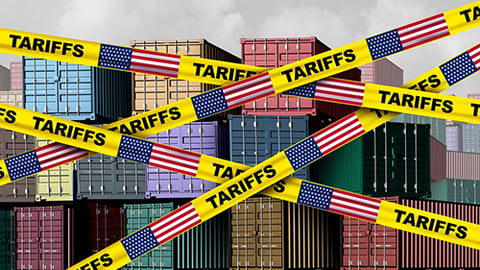Consumer Sentiment Continues to Fall Amid Elevated Inflation, Tariff Concerns
U.S. consumer sentiment declined for the fourth straight month in April to its lowest reading since July 2022 amid intensifying unease about economic policy developments and inflation.
Sentiment plunged 8.4% in April to 52.2, down from 57.0 in March February, according to The University of Michigan’s Consumer Sentiment Index. The measure is down 32.4% year over year.
With regard to current economic conditions, the index fell a “modest” 6.3% to 59.8. Looking ahead, however, the expectations index plummeted 10.1% to 47.3 — its lowest lowest point since 1980 — and is down 37.8% year over year.
[RELATED: Walmart Shares Business Strategy Amid Tariff Pressure]
“Expectations have fallen a precipitous 32% since January, the steepest three-month percentage decline seen since the 1990 recession,” said Joanne Hsu, director, surveys of consumers, University of Michigan. “While this month’s deterioration was particularly strong for middle-income families, expectations worsened for vast swaths of the population across age, education, income, and political affiliation.”
Consumers perceived risks to multiple aspects of the economy, in large part due to ongoing uncertainty around trade policy and the potential for a resurgence of inflation looming ahead, according to Hsu.
Inflation
Year-ahead inflation expectations surged from 5.0% last month to 6.5% this month, the highest reading since 1981 and marking four consecutive months of unusually large increases of 0.5 percentage points or more. The rise in March was seen across all three political affiliations.
The inflation expectations evolved with major trade policy announcements this month. After the April 9 partial pause in tariff increases, inflation expectations ebbed but remained substantially elevated relative to March. Long-run inflation expectations climbed from 4.1% in March to 4.4% in April, reflecting a particularly large jump among independents.
Labor Market
Labor market expectations remained bleak. Nearly two-thirds of consumers expect unemployment to rise in the year ahead, more than double the reading from six months ago.
Even more concerning for the economy, Hsu said, is that consumers anticipated weaker income growth for themselves in the year ahead. Less than half of consumers expect their own incomes to grow in the year ahead, down from nearly 60% half a year ago.
“Without reliably strong incomes, spending is unlikely to remain strong amid the numerous warnings signs perceived by consumers,” she added.
Trade Policy
About 60% of consumers in April “spontaneously” mentioned tariffs during interviews, up sharply from 44% in March. The April reading includes the 59% of independents and 44% of Republicans who referenced tariffs, showing that these tariff concerns have become widespread and span the political spectrum.
“While consumers may have seen the April 9 announcement of a partial pause on tariff increases as a positive development, the announcement was not enough to settle consumers’ concerns over the potential impact of trade policy on the economy,” the report said.
This article was originally covered by sister publication Chain Store Age.






